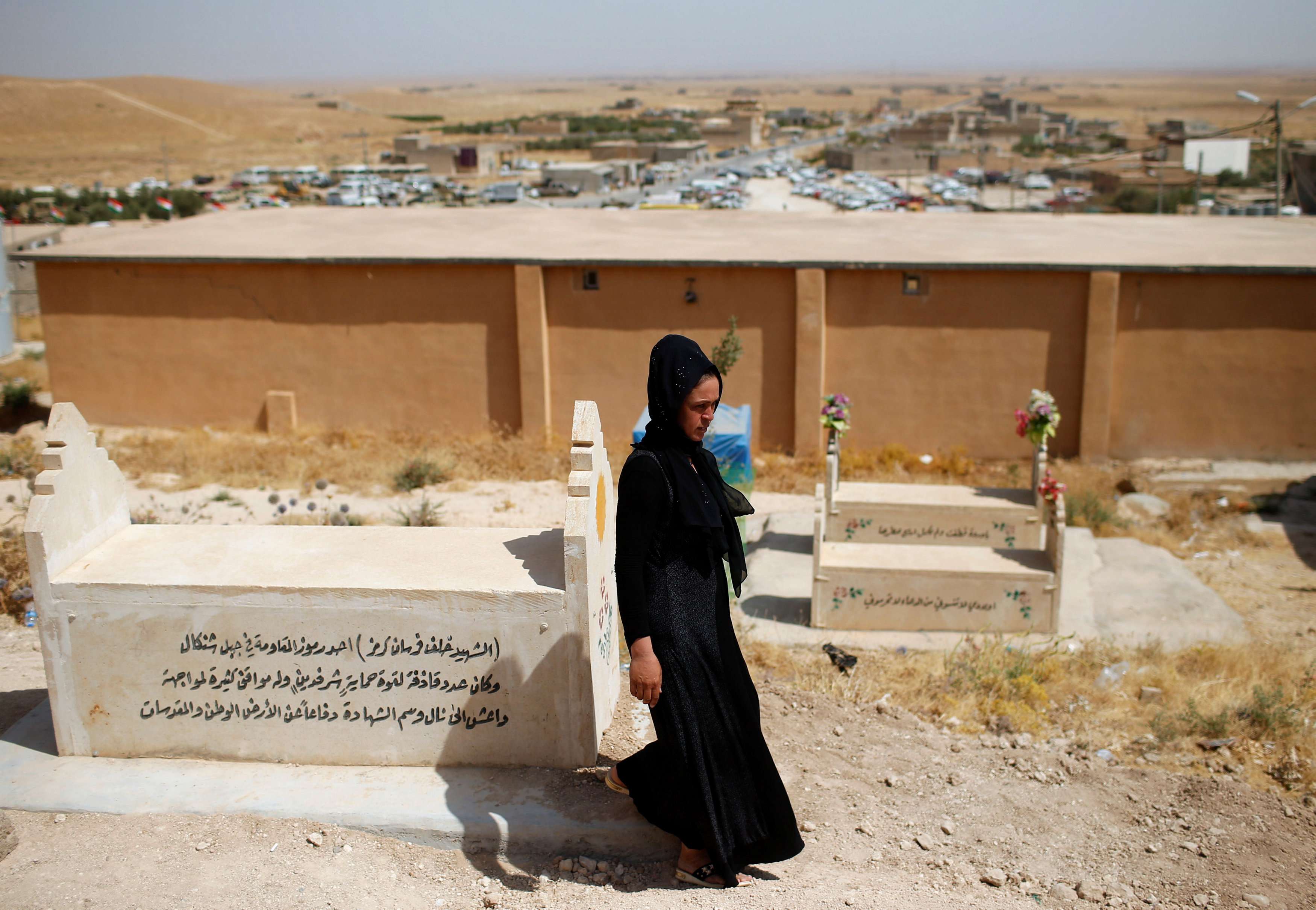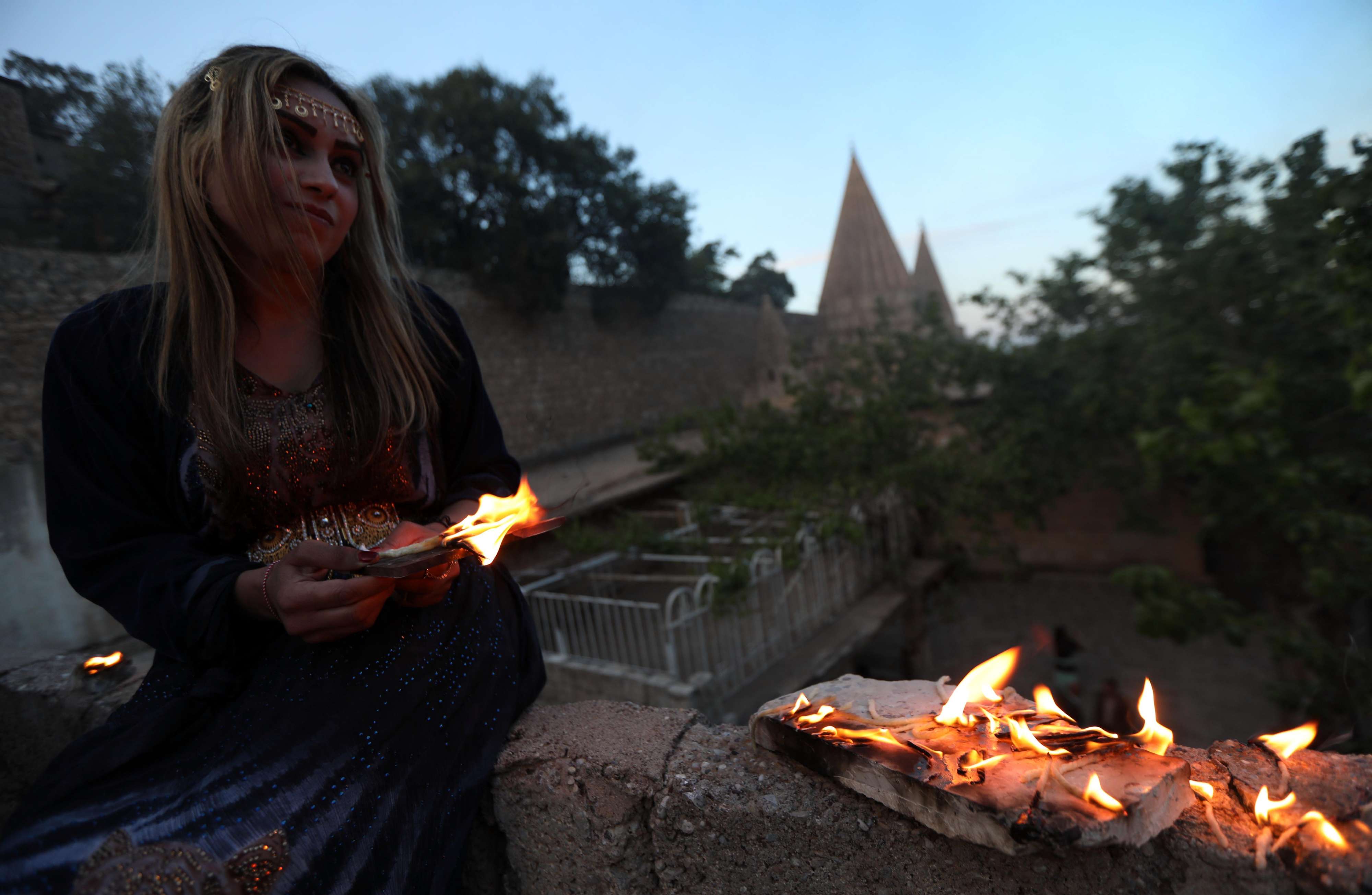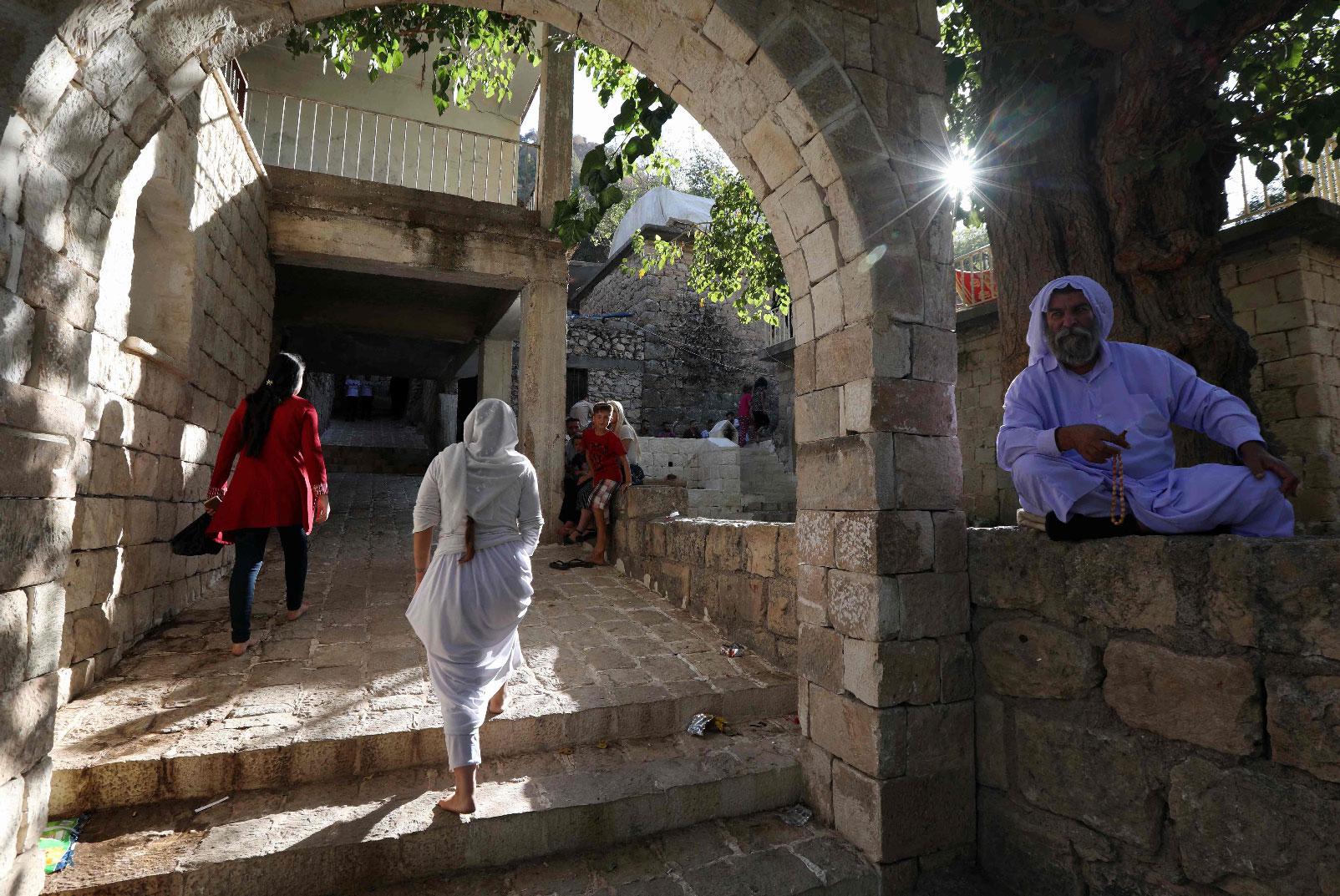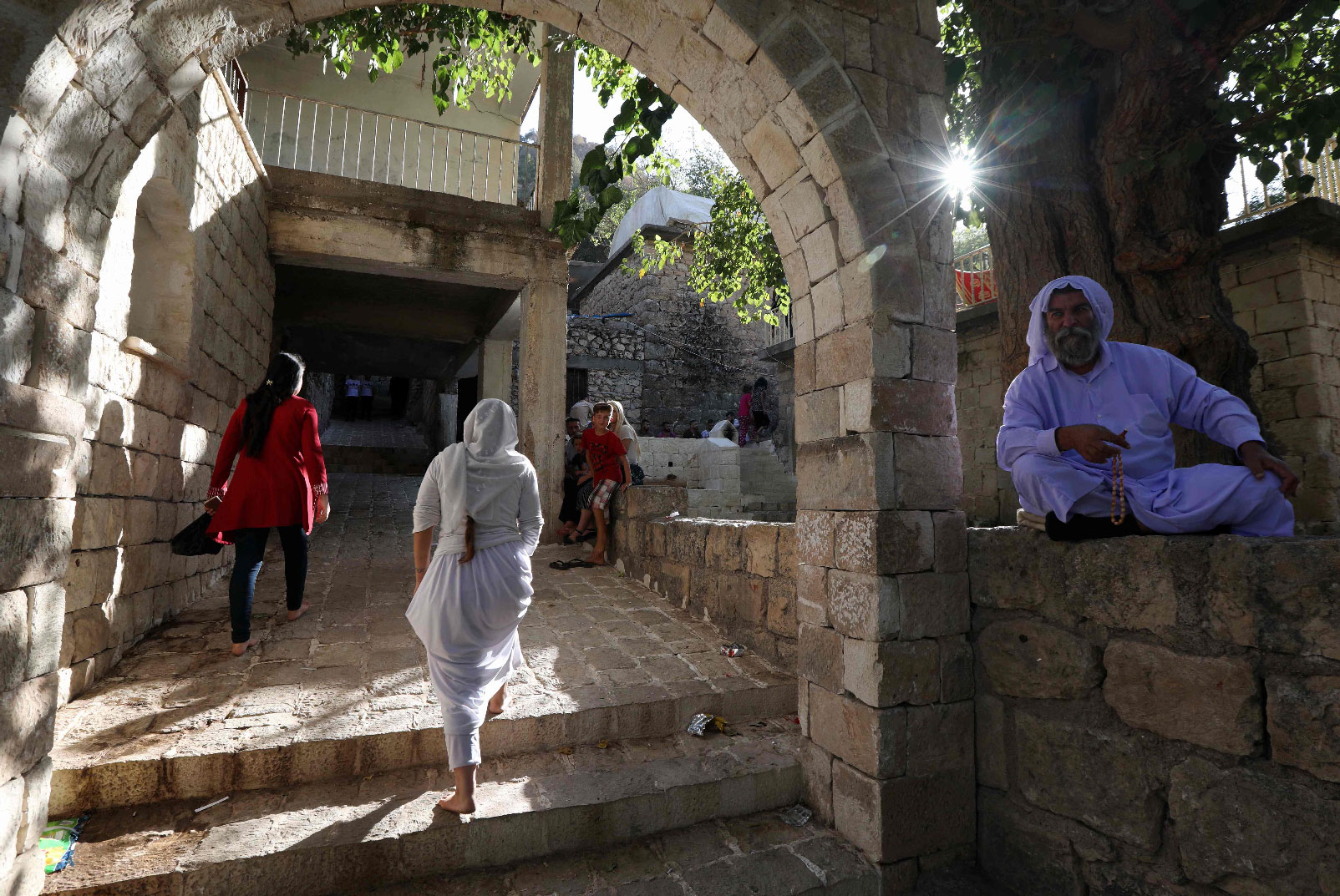
Yazidis say Peace Prize is victory for 'all victims'
LALISH - Yazidi pilgrims trekked up a mountain in northern Iraq barefoot Friday for their most important ritual, their joy doubled on hearing that their "daughter" Nadia Murad had won the Nobel Peace Prize.
During the seven-day festival, known as the Jemayyiat, friends and families gather around the tomb of their founder Sheikh Adi at a mountain top temple in the holy town of Lalish.
They unite as a people to worship and eat together in a festive mood which this year has taken on a whole new flavour because of Murad.
"We are very happy because she won," said pilgrim Loqman Suleiman as he walked along the one-kilometre path to the temple.
"She is the Yazidi voice from abroad and she speaks for all our nation," he said.
All around him, pilgrims flocking to Sheikh Adi's shrine are all smiles and proud of the young Nobel peace laureate, the first Iraqi to receive such an honour.
Murad, a 25-year-old Yazidi campaigner, will share the 2018 Nobel Peace Prize with Congolese doctor Denis Mukwege for their work in fighting sexual violence in conflicts around the world.
The young woman is a former Islamic State group sex slave who in 2014 was kidnapped by the jihadists and held three months before she managed to escape.
She survived the worst cruelties inflicted on her people.
History of persecution

The Yazidis are one of Iraq's oldest religious minorities. They have lived primarily in Iraq, Turkey and Syria, and have an estimated population of 550,000. They have been persecuted for centuries. Some Muslim sects consider them infidels; some Iraqis falsely see them as worshippers of Satan.
They speak Kurdish and their traditions are amalgamated, being rooted in the ancient Persian religion of Zoroastrianism but over time integrating elements of Islam, Christianity, Judaism and Manichaeism.
The community has repeatedly been subjected to brutal attacks leaving thousands of its members dead. During the Ottoman empire, Yazidis were subjected to several massacres in the 18th and 19th century and suffered persecution under Saddam Hussein's secular rule in Iraq.
Before IS rose to power, the Yazidis were the subjects of one of the deadliest single attacks after the 2003 US-led invasion of Iraq. Four suicide truck bombs targeted Yazidi villages north of the country, killing some 400 people and wounding many more on Aug 14, 2007.
The attack was carried by out by the Islamic State in Iraq, IS's predecessor. One of the worst subjugations of the Yazidis occurred four years ago, when the terrorist group committed genocide and other crimes against the community as their power in the country peaked in the summer of 2014.
Thousands of Yazidi women and girls were abducted, raped and brutalised by jihadists during their assault on the minority, which the United Nations has described as genocide. Some managed to flee, including Murad who told the world of the horrors she and her community experienced.
About 5,000 Yazidi men were killed by IS when the Sunni militant group took control of Iraq's northwest four years ago.
About 3,000 Yazidis still remain missing, most thought to have been killed in the war that rolled back IS control in Syria and Iraq over the past three years.
In August 2014, IS militants swept into Sinjar, the ancestral homeland of the Yazidis near the Syrian border, after capturing the northern city of Mosul and declaring an Islamic caliphate across large areas of Iraq and neighboring Syria.
Tens of thousands of Yazidis escaped to Mount Sinjar, where most were eventually rescued by Kurdish forces. In November 2015, Kurdish militias and US-led coalition aircraft drove IS out of Sinjar.
Many Yazidis still live in camps in Iraqi Kurdistan, too afraid to return to their homes in Sinjar, charities say. The persecution has forced thousands of Yazidis to seek asylum in Europe, with an estimated 60,000 in Germany.
'We pray for her'

Murad once lived a quiet life in the village of Kocho in Sinjar before the jihadists turned it into hell.
Years after her ordeal she campaigns for the 3,000 Yazidis who remain missing, with Lamia Haji Bashar, a friend with whom she shared the 2016 Sakharov human rights prize.
Zeri Khodr, who is also from Kocho, said 12 members of her family who were abducted by IS jihadists are still among the missing and Nadia's efforts to lobby for their release is of utmost importance.
"Nadia used to visit us in the (refugee) camps to ask about our welfare," Khodr, 40, said.
"She is like a daughter to us and we pray that she will continue her fight" for the missing Yazidis, she added.
Today the Yazidis mainly live in remote corners of northern Iraq, following their ancient religion that emerged in Iran more than 4,000 years ago.
With no holy book and organised in castes, Yazidis pray to God facing the sun and worship his seven angels -- first and foremost Melek Taus, or Peacock Angel.
Yazidis believe that the seven angels gather during the seven-day Jemayyiat festival to shower those who gather at the Lalish temple with their blessings.
And on Friday they were truly blessed as the Nobel committee announced that Murad became a peace laureate.
"Today marks a special day for the Yazidis and other minorities and all victims of genocide and mass atrocities committed" by IS, said the Yazidi NGO Yazda.
"We hope that this recognition will help Nadia and Yazidis endeavours to bring justice, peace, and coexistence," Yazda tweeted on Friday.


